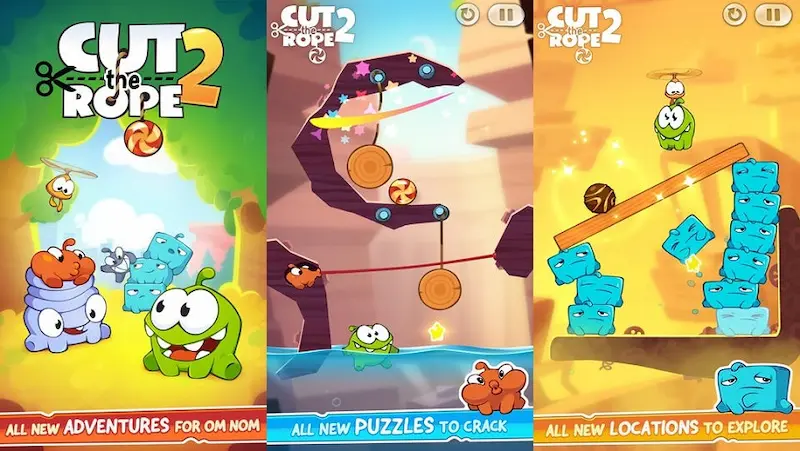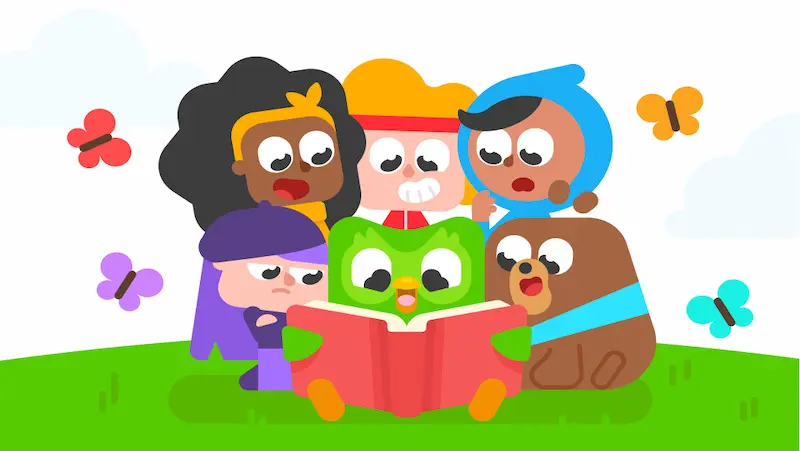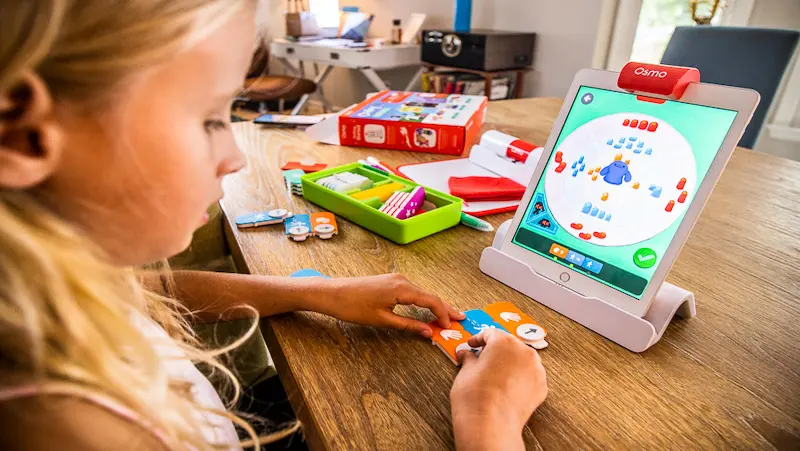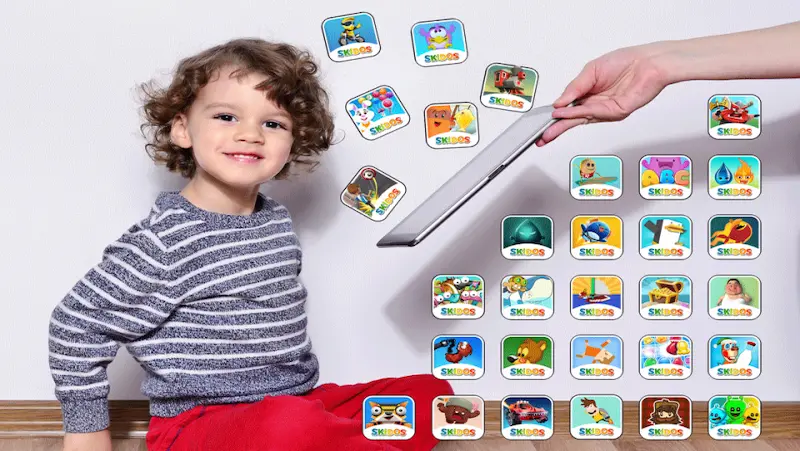Are you looking for fun and educational online games to keep your kids engaged and entertained? Look no further!
In today’s digital age, online games can be a great way to help children learn and develop essential skills while having a blast. These games provide a unique opportunity to combine entertainment and education, allowing children to learn through play.
From problem-solving and critical thinking to language and math skills, there is a wide range of online games available that cater to various age groups and subjects. Whether your child wants to explore outer space, solve puzzles, or embark on exciting adventures, there are countless options to choose from.
These games often feature colorful graphics, engaging storylines, and interactive gameplay, making learning enjoyable and captivating. So, why not encourage your child to dive into the world of fun and educational online games that can ignite their curiosity and spark a love for learning?
Table of contents
Introduction
In today’s digital era, online games have become an increasingly popular form of entertainment for children. These games offer not only fun and excitement but also a range of benefits for young minds.
Here are some key advantages of playing online kids games:
1. Educational Value: Many online games are designed to be educational, helping children develop and enhance important skills such as problem-solving, critical thinking, creativity, and decision-making.
2. Learning Through Play: Online games provide an interactive and engaging learning environment, allowing children to learn and apply new concepts in a fun and practical way. They can explore various subjects, from mathematics and science to language and geography, while actively participating in the gameplay.
3. Cognitive Development: Online games often require strategic thinking, memory retention, and quick decision-making, which help in improving cognitive abilities and boosting brain development.
4. Social Interaction: Multiplayer online games enable children to connect and interact with other players from around the world, fostering social skills, motor skills, teamwork, and collaboration.
5. Technology Literacy: Playing online games helps children become familiar with technology and develop digital literacy skills that are essential in today’s technology-driven world.
6. Stress Relief and Entertainment: Online games provide a break from academic pressures and offer a recreational outlet for children to relax and enjoy themselves.
7. Adaptability and Resilience: Many online games involve challenges and obstacles that require persistence and adaptability, teaching children valuable life skills such as resilience, patience, and perseverance.
It’s important to note that while online games can be beneficial, it’s crucial for parents to set appropriate time limits, ensure age-appropriate content, and supervise their child’s online activities to create a safe and balanced gaming experience.

Types of Online Games for Kids
Online games for kids can be categorized into different types based on their genres and gameplay. Also, Computer games for kids offer an interactive and educational way for children to develop various skills while having fun. Here are some common types of online games and their corresponding benefits for a child’s development:
1. Educational Games
These games are explicitly designed to teach various subjects and skills while keeping the gameplay engaging. Examples include:
a. Math Blaster: Helps improve math skills through interactive challenges and puzzles.
b. TypingClub: Enhances typing proficiency and speed through fun typing exercises and games. Engaging in typing games for kids can help improve their keyboarding skills while having fun.
c. National Geographic Kids: Explores nature, animals, and geography through interactive quizzes and activities.
Benefits: Educational games promote learning in a playful manner, helping children develop specific academic skills and knowledge.

2. Puzzle Games
These games involve solving puzzles, riddles, and logical challenges. Examples include:
a. Portal: Requires players to solve intricate puzzles using physics and spatial awareness.
b. Cut the Rope: Challenges players to figure out the best way to feed a cute character by cutting ropes and manipulating objects.
c. Sudoku: Enhances logical thinking and problem-solving skills through number puzzles.
Benefits: Puzzle games stimulate critical thinking, problem-solving abilities, and logical reasoning in children. Parents often introduce puzzles to kids as a fun and educational activity that encourages cognitive development

3. Action/Adventure Games
These games involve exploration, quests, and fast-paced action. Examples include:
a. Minecraft: Encourages creativity and resource management in a virtual world where players can build, explore, and survive.
b. The Legend of Zelda series: Promotes problem-solving, strategic thinking, and teamwork in an adventurous fantasy setting.
c. Super Mario Bros.: Develops hand-eye coordination, reflexes, and spatial skills through platforming challenges.
Benefits: Action/adventure games enhance hand-eye coordination, decision-making, and strategic planning while providing a thrilling gaming experience. Parents and educators often use Minute to Win It games for kids to promote teamwork, coordination, and quick thinking.

4. Simulation Games
These games simulate real-life situations and activities. Examples include:
a. The Sims: Allows players to create and manage virtual characters, homes, and relationships, promoting social and life management skills.
b. RollerCoaster Tycoon: Develops planning, budgeting, and management skills as players create and manage their own amusement parks.
c. Farming Simulator: Teaches agricultural concepts, resource management, and problem-solving in a virtual farming environment.
Benefits: Simulation games promote creativity, problem-solving, planning, and decision-making skills in realistic scenarios. Learning games for kids offer a playful and interactive way to foster educational growth and curiosity.

5. Language Learning Games
These games focus on teaching languages and vocabulary. Examples include:
a. Duolingo: Offers interactive language lessons and exercises to learn various languages.
b. Wordplay: Engages players in word puzzles, anagrams, and vocabulary challenges.
c. Language Nut: Provides interactive language learning activities, including pronunciation practice and vocabulary building.
Benefits: Language learning games help improve vocabulary, language comprehension, pronunciation, and overall language skills.
By incorporating a variety of these game types into a child’s online gaming experience, parents can provide a well-rounded opportunity for learning, skill development, and enjoyment. Also, Coding games for kids offer a hands-on introduction to programming, turning technology into a creative playground.

How to Choose Safe and Age-Appropriate Online Games
Choosing safe and age-appropriate online games for children is essential to ensure a positive and secure gaming experience. Parents often seek out age-appropriate and educational games for kids to play during their free time. Here are some tips to help you in selecting appropriate games:
1. Check Game Ratings: Pay attention to game ratings provided by official rating boards such as the Entertainment Software Rating Board (ESRB) or Pan-European Game Information (PEGI). These ratings provide guidance on the age appropriateness of the content and indicate if there are any potentially objectionable elements.
2. Read Reviews: Look for reviews or recommendations from trusted sources, such as parenting websites, educational organizations, or gaming communities. Reviews can give you insights into the game’s content, educational value, and potential safety concerns.
3. Understand Game Features: Familiarize yourself with the game’s features, including online interactions, in-app purchases, and chat functions. Ensure that the game has appropriate safety settings and parental controls to protect your child’s privacy and limit access to unwanted content.
4. Set Time Limits: Establish reasonable limits on playtime and screen time for your child. Encourage a healthy balance between online gaming and other activities such as physical play, reading, or social interactions.
5. Play Together: Engage in gaming sessions with your child. This allows you to experience the game firsthand, assess its content, and have meaningful conversations about online safety and responsible gaming habits.
6. Enable Parental Controls: Utilize parental control features available on gaming consoles, devices, or gaming platforms. These controls can help you manage access to games, restrict certain features, and monitor your child’s activity. Also, explore Gentle parenting encourages parents to approach challenges with patience and compassion, creating a harmonious family dynamic.
7. Join Age-Appropriate Gaming Communities: Look for online gaming communities specifically designed for children, where they can play and interact with other players their age. These communities often have enhanced safety measures and moderation to ensure a secure gaming environment.
8. Regularly Monitor and Communicate: Stay involved in your child’s online gaming activities. Regularly check their gaming history, review their interactions, and communicate openly about online safety, responsible behavior, and potential risks they may encounter.
By following these tips, you can make informed decisions and create a safe and age-appropriate gaming environment for your child, allowing them to enjoy online games while minimizing potential risks.

Top 10 Online Games for Kids
Here’s a list of 10 top online games for kids, including both educational and fun options:
1. Minecraft: A creative and explorative game where players build and explore virtual worlds, fostering creativity, problem-solving, and collaboration skills. It offers endless possibilities for construction and imaginative play.
2. Prodigy: An educational math game that makes learning fun through interactive battles, quests, and puzzles. It adapts to each child’s skill level and helps improve math skills and problem-solving abilities.
3. ABCmouse: An immersive educational platform that offers a wide range of interactive learning activities, including reading, math, science, and art. It promotes early literacy and numeracy skills through engaging games and activities.
4. Animal Jam: A virtual world where kids can explore and learn about animals and nature. It encourages social interaction, teamwork, and environmental awareness through interactive quests, games, and educational resources.
5. Roblox: A platform that allows kids to create, play, and share their own games with others. It promotes creativity, problem-solving, and coding skills while fostering a sense of community and collaboration.
6. Coolmath Games: A collection of math-focused games that make learning math concepts entertaining and engaging. It covers various math topics and encourages problem-solving and critical-thinking skills.
7. Duolingo: A language-learning app that offers interactive lessons and games for learning languages such as Spanish, French, and more. It provides bite-sized lessons and encourages daily practice through gamified activities.
8. Kahoot!: A game-based learning platform that turns quizzes and learning materials into interactive games. It promotes engagement, critical thinking, and knowledge retention through fun quizzes and competitions.
9. Toca Life World: A digital playset where kids can explore and create their own stories in a virtual world. It encourages imaginative play, storytelling, and social interaction in a safe and creative environment.
10. Code.org: An educational platform that introduces kids to coding through interactive games and tutorials. It helps develop problem-solving, logical thinking, and computational skills while fostering an interest in technology and computer programming for kids.
Each of these games offers a unique set of benefits, from enhancing educational skills and knowledge to promoting creativity, problem-solving, and social interaction. They provide a combination of entertainment and learning opportunities, making them engaging choices for kids. Educational games for kids provide a fun and interactive way to enhance learning across various subjects.
Conclusion
In conclusion, online games for kids offer a wide range of benefits that make them an excellent tool for entertainment and education. These games promote learning through play, helping children develop essential skills such as problem-solving, critical thinking, creativity, and decision-making.
Whether it’s educational games that enhance specific academic subjects or fun-filled adventures that stimulate imagination and social interaction, online games provide an engaging and interactive learning environment.
By exploring the top online games for kids, parents can discover a variety of options that cater to different age groups and interests. Whether they’re looking for educational games to support their child’s learning or fun games for kids to encourage creativity and exploration, there are plenty of choices available.
Board games for kids provide a fantastic way to engage in screen-free entertainment while fostering family togetherness.
So, embrace the power of online games for kids and unlock their potential for learning and enjoyment. By selecting age-appropriate and safe games, parents can provide their children with a valuable opportunity to learn, develop skills, and have fun in a digital environment. Start exploring the world of online games for kids today and watch as your child’s curiosity and love for learning thrive!
To get your hands on more such educational and free resources on coding for kids, robotics, game development, etc., do check out the Brightchamps Blog Page now!’
Inspire your child’s journey of growth and discovery with BrightChamps. Our innovative edutech platform offers a transformative experience where kids delve into the worlds of robotics, financial education, and coding.
Frequently Asked Questions
Prodigy, ABCmouse, Minecraft, Duolingo, Coolmath Games, Animal Jam, Toca Life World, Code.org, Kahoot!, and Roblox are safe and educational online games for kids.
Check game ratings, read reviews, understand game features, set parental controls, monitor playtime, and engage in gameplay together to ensure age-appropriate online games for your child.
Yes, there are online games like Minecraft, Prodigy, and Toca Life World that can help develop problem-solving, creativity, and imagination skills in children.
Excessive gaming, lack of balance, and exposure to inappropriate content can potentially have negative effects on a child’s behavior and mental health. Monitoring and setting limits are important.
The American Academy of Pediatrics recommends limiting screen time to no more than 1-2 hours per day for children aged 2-5, and establishing age-appropriate limits for older children, balancing screen time with other activities.


 We are an army of educators and passionate learners from BrightChamps family, committed to providing free learning resources to kids, parents & students.
We are an army of educators and passionate learners from BrightChamps family, committed to providing free learning resources to kids, parents & students.

























